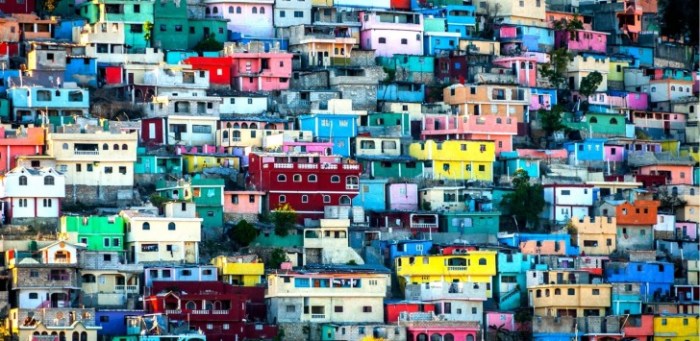Découvrez question et réponse connaissance générale sur haïti pdf, un guide exhaustif qui plonge dans l’histoire, la culture, la politique et l’économie d’Haïti. Ce document éclairant vous offre une compréhension approfondie de ce pays fascinant, vous permettant de naviguer dans ses nuances complexes avec aisance.
Au fil de ces pages, vous découvrirez les fondements géographiques et historiques d’Haïti, ainsi que sa culture vibrante et sa société dynamique. Nous examinerons son économie et son infrastructure, explorerons son système politique et sa gouvernance, et nous pencherons sur ses relations étrangères.
Haitian Geography and History
Haiti, officially known as the Republic of Haiti, is a Caribbean nation occupying the western third of the island of Hispaniola, which it shares with the Dominican Republic. With an area of 27,750 square kilometers (10,714 square miles), Haiti is the third-largest country in the Caribbean by land area, after Cuba and the Dominican Republic.Haiti’s
landscape is characterized by a rugged mountainous terrain, with the Massif de la Hotte in the southwest being the highest point at 2,347 meters (7,700 feet) above sea level. The country has a tropical climate with an average temperature of 26°C (79°F) throughout the year.
Haiti is prone to natural disasters such as earthquakes, hurricanes, and floods.
Significant Historical Events
Haiti has a rich and tumultuous history, marked by periods of colonization, independence, and political instability. The island was first inhabited by the indigenous Taíno people before being colonized by Spain in the 15th century. In the 17th century, France established a colony in the western part of the island, which became known as Saint-Domingue.Saint-Domingue
became one of the wealthiest and most productive colonies in the Caribbean, fueled by the labor of enslaved Africans. However, the harsh conditions and brutality of slavery led to a series of revolts, culminating in the Haitian Revolution in 1791. The revolution was led by Toussaint Louverture, a former slave who became a general and eventually the leader of Haiti.In
1804, Haiti declared independence from France, becoming the first independent Black republic in the world. However, Haiti’s history has been marked by political instability, dictatorships, and foreign interventions. The country has also faced significant challenges, including poverty, corruption, and natural disasters.
Haitian Culture and Society: Question Et Réponse Connaissance Générale Sur Haïti Pdf

Haiti has a vibrant and unique culture that is a blend of African, European, and indigenous influences. The Haitian people are known for their warmth, hospitality, and love of music and dance.
Unique Traditions
Haitian culture is rich in traditions, including the practice of Vodou, a syncretic religion that combines elements of Catholicism and African spiritual beliefs. Vodou is an integral part of Haitian society and is often expressed through music, dance, and art.Haiti
is also known for its vibrant Carnival celebrations, which take place annually in the lead-up to Lent. Carnival is a time for music, dancing, and colorful costumes, and it is a major tourist attraction.
Demographics and Education, Question et réponse connaissance générale sur haïti pdf
Haiti has a population of approximately 11.4 million people, with the majority living in rural areas. The official languages of Haiti are French and Haitian Creole, a French-based creole language.Haiti has a young population, with over half of the population under the age of 18. However, the country faces significant challenges in providing education for its citizens.
The literacy rate in Haiti is low, and many children do not have access to quality education.
Haitian Economy and Infrastructure

Haiti is the poorest country in the Western Hemisphere and one of the poorest in the world. The economy is heavily dependent on agriculture, with coffee and mangoes being major exports. However, Haiti is also vulnerable to natural disasters, which can disrupt economic activity.
Key Industries and Challenges
The Haitian economy is characterized by a large informal sector, with many people working in small businesses or as street vendors. The country also has a significant tourism industry, which is concentrated in the coastal areas.However, Haiti faces significant economic challenges, including poverty, unemployment, and a lack of infrastructure.
The country is also heavily indebted and relies on foreign aid to support its budget.
Infrastructure
Haiti’s infrastructure is underdeveloped and in need of significant investment. The country has a limited road network, and many rural areas are inaccessible by road. Haiti also has a shortage of electricity, and many people rely on generators for power.The
Haitian government is working to improve the country’s infrastructure, but progress has been slow due to a lack of funding and corruption.
Common Queries
Où se trouve Haïti ?
Haïti est situé sur l’île d’Hispaniola, dans les Caraïbes.
Quelle est la capitale d’Haïti ?
Port-au-Prince est la capitale d’Haïti.
Quelle est la langue officielle d’Haïti ?
Le français et le créole haïtien sont les langues officielles d’Haïti.